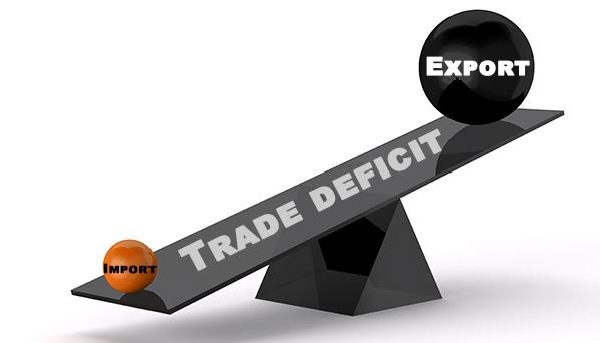
Trade deficits occurs when a country imports more than it exports commodities, i.e. higher volume of imports and lower exports. Kenya posted a trade gap of KES 76.5 billon in December 2016, following a KES 73.6 billion shortfall in the previous year, with exports decreasing by 8.3% year-on-year to KES 46.7 billion. The main cause trade deficits in the nation is as a result of the country not being able to produce enough goods and services to cater for all of its population. Increased imports than the country can afford forces it to borrow loans from developed countries in order to service its foreign debts. The balance of payments must always net out to zero. But the gap between net exports and imports in Kenya continues to widen by day. The following are cons of having trade deficits:
Currency value
Trade deficit (balance of trade) influences currency exchange rates through its effect on supply and demand for foreign exchange. Kenya exporting more than it imports leads to low demand of its currency (KSH) leading to a decline in prices. Making the currency to depreciate/ loose its value.
Interest rates
Continued trade deficits affects interest rates in the nation. Trade deficits can lead to inflation in Kenya. A downward pressure on Kenya’s currency have led to its devaluation resulting to inflation. The Central Bank is thus forced to place restrictive monetary policy tools on the government in order to lower inflation rates.
Employment
Increased demand for foreign goods and services by Kenyans have led to the loss of domestic jobs to those of abroad. This has resulted in an increase in unemployment rates in the country as a result of decline of local industries and businesses.
Direct foreign investment
Deficit nations suffers from increased foreign direct investment and foreign ownership of their government’s debt. For Kenya and other developing countries, this is highly lethal because a large proportion of the country’s assets and resources become owned by foreigners who control and influence how those resources are used.
As Kenyans, we should learn more to appreciate our own domestic made commodities instead of choosing to import a commodity which is as well locally available.





